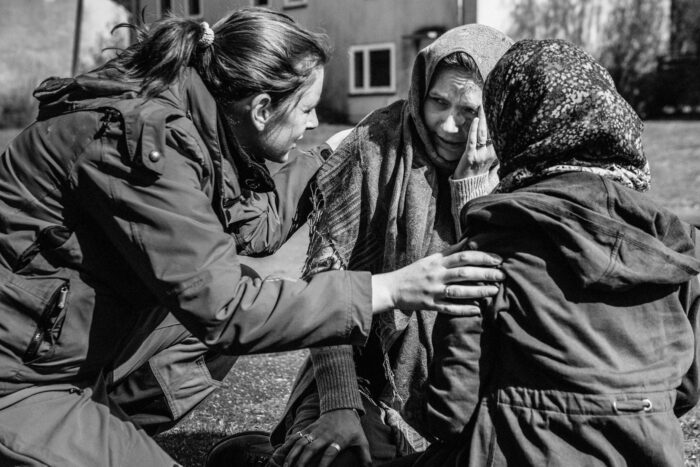Security from Experience I: interview with Henrieke Hommes (Advisor ZOA )
The second interview in this series is with Henrieke Hommes, advisor for ZOA. ZOA is an NGO focused on providing relief to people affected by conflict or natural disasters and on working on recovery of people’s livelihoods. Henrieke has extensive experience in the field. She worked for seven years in amongst others Uganda and Somalia. Afterwards, she became an advisor for ZOA, a faith based organisation, in the Netherlands.
She is responsible for the development and the delivery of ZOA’s guidelines regarding the security of its staff and to monitor and contribute to the implementation of security in ZOA programmes worldwide.
Although Henrieke has never been involved in an incident with a fatal ending, it made her realise how important good security policies are and it makes that she is able to provide support to the organisations security management and specifically preparation for field work.
The limitations of policy documents
According to Henrieke, a crucial element of NGO security management is the development of clear security policy documents. In addition, it is crucial that there is a security culture and that security policies are implemented thoroughly. Henrieke makes clear that security in the field is the shared responsibility of the entire organisation and every individual needs to adhere to the rules. In order to create a security culture, back up and support from the management team is crucial. In countries where employees are not able to read the security policies, the Country Director will need to ensure that the security policies are properly explained to people.
In order to make people aware of the importance of security culture, it is important to explain the necessity of security policies. Henrieke sees that people within the organisation increasingly want to be informed and prepared before starting to work in the field. This is also reflected in the fact that ZOA now has a fulltime security advisor for the last 3 years.
When asked what the most underestimated risk is, Henrieke states that risks associated with traffic are still underestimated while simple measures can be taken to reduce traffic accidents. Another aspect is the importance of awareness of cultural differences. The way you dress, how you communicate to authorities, local communities, armed groups, where you take pictures off etc. can cause problems. Preparation is key to address these.
Preparation for field work
Henrieke prepares her colleagues for field work by ensuring they attend a three or four day training. If someone has not attended a training, this person is not allowed to travel alone. In addition all staff get a security briefing before travelling, where security policies and procedures are covered and an overview of incidents is presented, to provide people with a better understanding of the risks involved.
Every organisation needs to make their own risk assessment for each location they work in. Henrieke explains that ZOA has their own system to assess risks, which fits the risk profile of the organisation. Henrieke strongly believes that only an organisation itself is able to decide on capacity and risk levels and having your own system allows you flexibility to do so.
Cooperation is important according to Henrieke. Sharing information and incidents via the different NGO fora helps the individual organisations in making risk assessments and procedures.
The challenges for security management in the coming five years according to Henrieke are the increased complexity and the global components of conflicts, the trend where aid workers become more and more a target, the sharp increase in aid worker incidents and the need for NGOs to find ways to continue assisting the populations in need. Even with the current financial challenges, it is critical for organisations to ensure a firm security framework within their organisations in order to continue operating in high risk environments.
